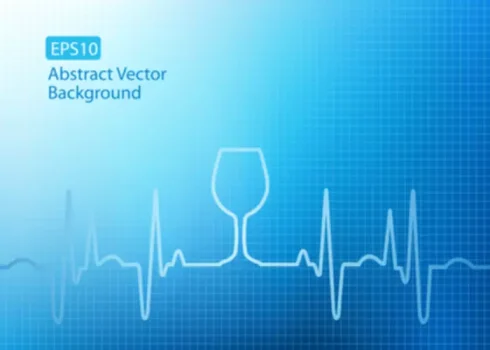
If they don’t want to stop drinking entirely, we discuss what might be a reasonable limit. I tell patients I think one to two drinks a week is unlikely to be harmful – but that I can’t guarantee that there are no possible risks. Most of the time, patients just want to know it’s OK to have a glass of wine to celebrate a special occasion. The CDC caused controversy in February 2016 when it published a report intended to raise awareness of the risk of FASD due to drinking before a woman realizes she is pregnant. The report recommended that women who are sexually active and want to get pregnant should avoid alcohol, and women who are sexually active and don’t want to get pregnant should use an effective birth control method.
- It offers current information and opinions related to women’s health.
- For example, one study showed that mothers who had children diagnosed with FASDs had a lower intake of several nutrients, such as calcium, which is important for bone development, and riboflavin, which plays an important role in vital biochemical reactions [110].
- People with FASD can also have behavioral problems, such as poor judgment, not understanding the consequences of their actions, and trouble with social relationships.
- Following PAE, an increase in pro-inflammatory microglia in the cortex is found [91].
- It is difficult to diagnose FASD because there is no biological test and other disorders such as attention-deficit/hyperactivity disorder and Williams syndrome have similar symptoms.
Drinking while pregnant: What we know and what we don’t
- An increased awareness among the general public and health care providers combined with effective universal prevention strategies and improved guidelines for the detection, prevention, and management of FASD, are important measures in addressing this ongoing concern.
- FAS disorder spectrum and other adverse fetal effects secondary to maternal alcohol consumption prenatal alcohol exposure will continue to be a substantial public health concern and afflict future generations without successful prevention, intervention, and management.
- In an effort to mitigate the effects of PAE, extracellular vesicles (EVs) have been of interest due to their involvement in intercellular communication, biocompatibility, low toxicity, and non-immunogenic properties [5,74,75].
- These adverse effects can vary from one affected individual to the next and can include a range of structural and functional abnormalities, growth retardation, central nervous system dysfunction, and craniofacial dysmorphology [3].
- Use CDC’s alcohol screening tool to check your drinking and make a plan to drink less.
- This sheet is about exposure to alcohol in pregnancy and while breastfeeding.
Because individuals with FASDs have increased mortality rate that is contributable in part to systemic diseases, future studies need to continue this endeavor of revealing the pathogenic underpinnings of FASDs and the long-term effects of PAE mechanisms. Binge drinking exposes the developing baby to the highest amount of alcohol at one time and is known to increase risks to the pregnancy. The effects of other specific patterns of alcohol use in pregnancy are not as well understood because some studies look at weekly averages while others look at daily use. It is recommended not to drink any amount of alcohol at any time in pregnancy or if you might be pregnant.

Studying the connection between anxiety and preterm birth
The times before, during and after pregnancy are all critical periods for maternal alcohol consumption awareness, reduction, and ideally abstinence. An increased awareness among the general public and health care providers combined with effective universal prevention strategies and improved guidelines for the detection, alcohol during pregnancy prevention, and management of FASD, are important measures in addressing this ongoing concern. Knowing that fetal alcohol exposure is the most common nongenetic cause of cognitive impairment, it is critical to identify maternal alcohol consumption early as a primary target to prevent downstream FASD.
Social and behavioral issues
It looks at whether it is safe to drink alcohol during pregnancy and how it affects the unborn baby. The trouble with guidelines that recommend total abstinence is they don’t involve nuance. There are certainly women who truly have a problem with alcohol and whose drinking puts their babies at risk. For women who do not have an unhealthy relationship with alcohol and who want to have a drink on a special occasion, they shouldn’t fear being judged or have others make that decision for them.
What if I am pregnant and have been drinking?

Microvesicles, on the contrary, are produced through outward budding of the plasma membrane, while apoptotic bodies result from cell fragmentation during programmed cell death [81]. NIAAA supports and conducts biomedical and behavioral research on the causes, consequences, treatment, and prevention of alcohol-related problems. This website includes https://ecosoberhouse.com/ publications and information, such as the Drinking and Your Pregnancy brochure, which is available both in English and Spanish. The Navigator helps adults find alcohol treatment for themselves or an adult loved one. If you drank alcohol before you knew you were pregnant or before you knew that alcohol could harm your baby, stop drinking now.
Alcohol and Pregnancy: Dangers of Drinking Alcohol While Pregnant
So if you drank alcohol before you realized you were pregnant, the important thing is that you stop now. Numerous reliable sources and studies (like the one we mentioned above) mention that alcohol use in the first trimester may increase miscarriage risk. At the very top of its alcohol and pregnancy information sheet — and in bold type, no less — the Centers for Disease Control and Prevention (CDC) advises that women who are trying to become pregnant or could be pregnant shouldn’t drink. Or maybe you weren’t trying to get pregnant at all, and it came as a surprise when you realized that your period was over a week late.
National Organisation for FASD
They are planning a follow-up study to monitor the children as they grow older. CHD patients are more likely to survive to adulthood as diagnostics and surgical interventions have improved for CHD [172]. The majority of patients with CHD seen in the clinic are adults, and they will likely continue to represent the largest proportion of patients requiring life-long medical care [173,174].
Health Main Menu

